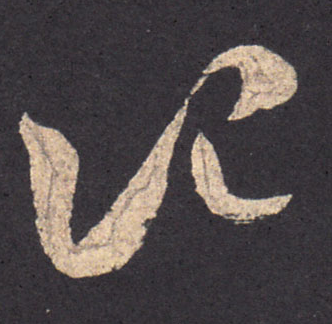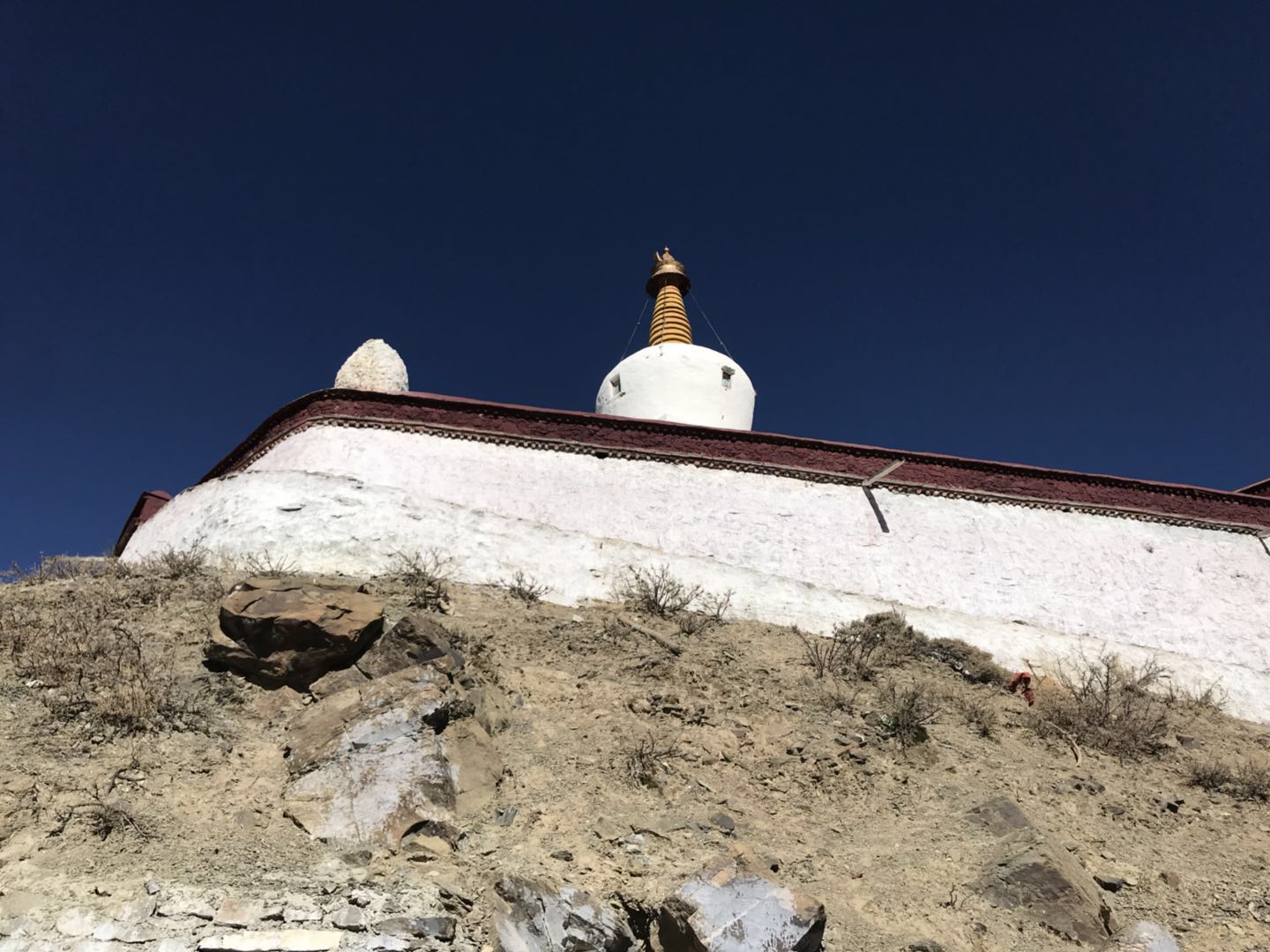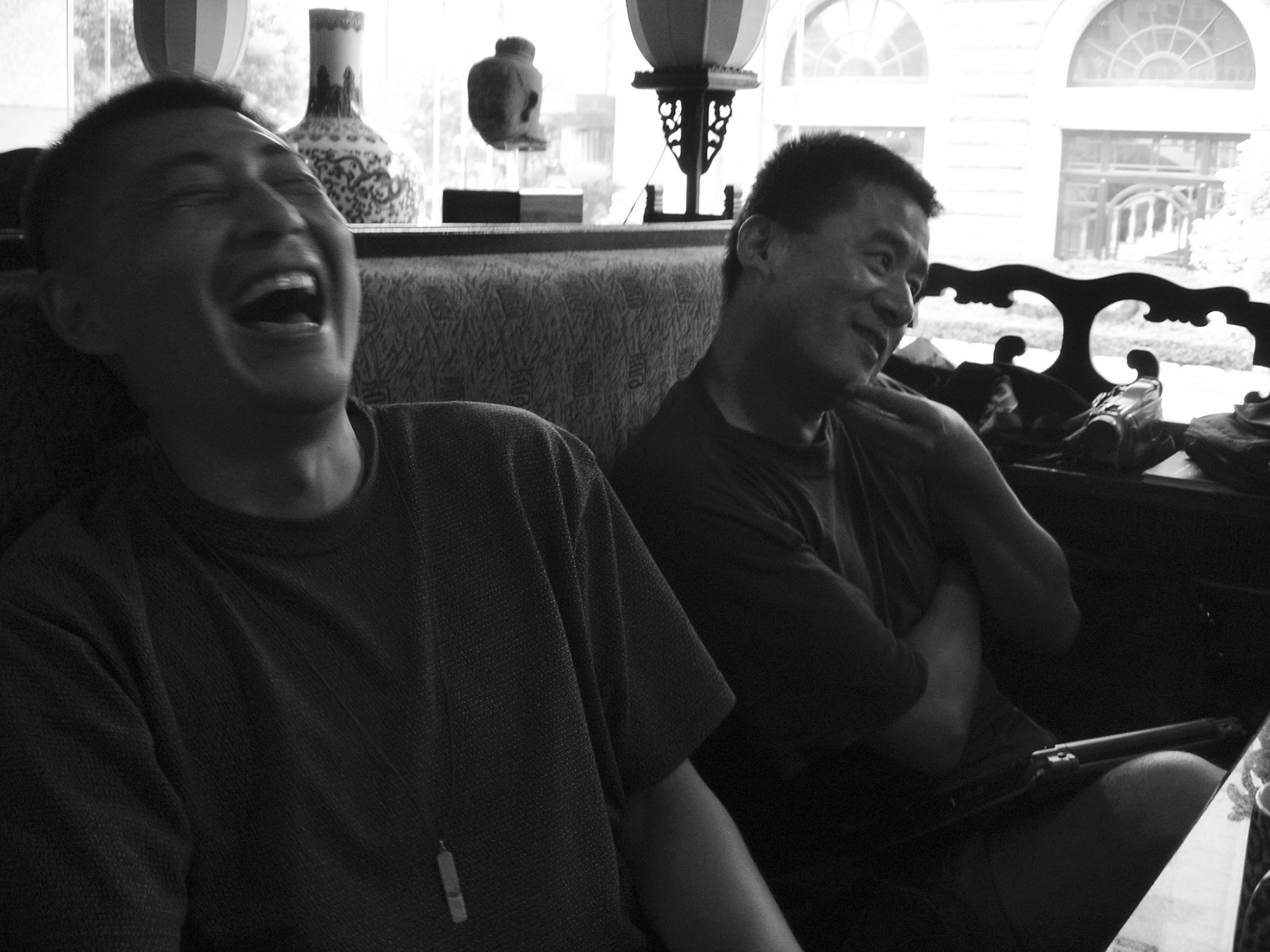Other People’s Thoughts is a section of the China Heritage site featured in our Journal. It is inspired by a compilation of quotations made by Simon Leys (Pierre Ryckmans), one of our Ancestors.
Pierre remarked that the modest volume of quotations recorded over his reading life was ‘idiosyncratically complied for the amusement of idle readers’ (see Simon Leys, Other People’s Thoughts, 2007). Our aim is similar: to amuse our readers (idle or otherwise), as is our modus operandi: to build up an idiosyncratic compendium, one that reflects the interests of The Wairarapa Academy for New Sinology and its coterie.
In collecting this material, and by adding to it over time (this is the fifth instalment in the series), we accord also with a Chinese literary practice in which quotations — sometimes called yǔlù 語錄, literally ‘recorded sayings’ — have a particular history, and a powerful resonance.

The most famous collection of recorded sayings is The Analects 論語, compiled by disciples of Confucius. Then there is the timeless 5000-words of Laozi’s The Tao and the Power 道德經, as well as the Chan/Zen 禪宗 tradition of what in English are known by the Japanese term kōan 公案 — anecdotes or statements aimed at goading an individual towards enlightenment — that date from the Tang dynasty. Modern imitations range from the political bon mots of Mao Zedong to excerpts from the prolix prose of Xi Jinping’s tireless speech writers, as well as published snippets from arm-chair philosophers and motivational speakers.
Other People’s Thoughts also finds inspiration in the ‘poetry talks’ 詩話, ‘casual jottings’ 筆記 and ‘marginalia’ 眉批 of China’s literary tradition.
— Geremie R. Barmé, Editor, China Heritage
20 December 2017
***
This selection of Other People’s Thoughts, the last for 2017, is dedicated to the memory of Geng Jianyi 耿建翌, friend, artist, raconteur, free-spirit. Jianyi passed away on 5 December 2017, and we miss him.
***
Other People’s Thoughts Index
- Introducing Other People’s Thoughts, 14 February 2017
- More Other People’s Thoughts, 8 May 2017
- Even More Other People’s Thoughts, 15 June 2017
- Other People’s Thoughts, IV, 6 August 2017
- Other People’s Thoughts, V, 22 September 2017
- Other People’s Thoughts, VI, 16 November 2017
In Memoriam
Geng Jianyi 耿建翌
Again and again elegant rubbings
Fade, carved stone records of history
Are demolished in a cultural holocaust,
Or eroded with graffiti. We can only join the dots,
Trace the calligraphic strokes,
Seek out the hidden scars, lament the fragmentations of
language.
— from P.K. Leung 梁秉鈞, Leaf Letter, trans. John Minford

***
Other People’s Thoughts, VII
Pretence
We are what we pretend to be, so we must be careful about what we pretend to be. (Kurt Vonnegut, Introduction, Mother Night, London: Vintage, 2000)
Tropical Fish
Should there be any historians left to write it, history might decide that ours is the beginning of an age when Australians began to live as tropical fish do off each other. Aware only of what they need and what threatens them, changing color with their emotions, lacking any sense of provenance, or fate, or life on ether side of the moment in they they live.
They were free of all faults, the historians might say.
They gave up on collective ideals, history and language at once. And they fashioned they lives according to their self-interest and their vanity. (Don Watson, ‘What will history make of us?’ in There it is again: collected writings, Sydney: Vintage Australia, 2017)
Civilising Revolution
As you might have gathered, I loved China. But Westerners have always loved China. In the last century they drugged her, stripped her naked, tied her hands above her head, and loved her as they pleased. We were lucky that a revolution was all that happened. If we are luckier still, the current bunch of Chinese gerontocrats will be smoothly replaced by a generation of intellectuals who were so appalled at the Cultural Revolution that they are now less frightened by democracy than by despotism. If that happens, the Chinese revolution might manage what the Soviet version so obviously can’t — to civilise itself. Here, as in every other aspect of Chinese life, tradition is a comfort. China knew totalitarianism two hundred years before Christ, when the mad First Emperor of the Ch’in obliterated all memory of the ancient glory of Chou, burned the classical texts and put to death anybody caught reading the Book of Songs. But he unified the tribes, and on that strong base rose the majestic dynasty of Han, on whose era the Chinese of today still pride themselves, as will the Chinese of tomorrow. (Clive James, Mrs T. in China: 2, 3 October 1982)
Culture and Self-knowledge
Culture is the way for a country to know itself. You can look at the central business district of Sydney … and you can know that the people who designed those buildings and paid for those buildings and planned those buildings have not the least fucking clue about culture or human life on the planet otherwise they wouldn’t make these dark, rotten, life-defying environments in one of the most beautiful cities in the world. (Peter Carey, You wake up in the morning and you are the beneficiary of a genocide, The Guardian, 18 November 2017)
The Burden of Proof
I’d say, if you’re trying to convince people of something that flies in the face of scientific orthodoxy, it’s advisable not to let slip that, before you started your researches, you had a huge emotional preference for what you ended up concluding. It may lead people to believe you’ve attached more weight to evidence supporting your theory than to evidence refuting it. (David Mitchell, The Earth may not be flat, but it just might be doomed, The Guardian, 19 November 2017)
Through a Looking Glass
Language-learning sentences are always slightly funny. They exist to teach you linguistically, not to communicate anything about the actual world. They are sentences that are also nonsentences — generic by design, without personality or ambiguity: human language in merely humanoid strings. The subtext is always just ‘Here is something a person might say.’ It’s like someone making a window. What matters is that it’s transparent, not what is being seen through it.
When James Joyce taught English to Italian speakers in Austria in 1905, he took the opposite approach, torturing his students with elaborate sentences like: ‘Dubliners are the most hopeless, useless and inconsistent race of charlatans I have ever come across, on the island or the Continent’ and ‘Proverbially and by nature our peasants walk in their sleep, closely resembling fakirs in their froglike and renunciatory sterility.’ (Sam Andreson, New Sentences: From Duolingo’s Italian Lessons, New York Times, 17 November 2017)
The Practice of Freedom
All states commit criminal and sometimes wicked acts. The necessary mark of a democracy is the freedom to tell the truth about these crimes so that they can be ended and the guilty punished.
To be a writer is not to simply believe in freedom but to practise it every day with your words. Each word allows us to find ourselves in others, and in others to know we are not alone. (Richard Flanagan, Behrouz Boochani exposed Australia’s evil on Manus. The shame will outlive us all, The Guardian, 24 November 2017)
Friends and Enemies
Our friends show us what we can do; our enemies teach us what we must do. (Goethe)
Forgiveness
No one ever forgets where he buried the hatchet. (Kin Hubbard)
Imagination
Imagination is to reality what poetry is to prose: the former will always think of objects as massive and vertical, the latter will always try to extend them horizontally. (Goethe)
Good can imagine Evil, but Evil cannot imagine Good. (anon.)
Identity Politics
[T]he purpose of identity politics: to restore humanity to people rendered invisible in politics and history. Identity politics insists on naming the social difference that fuels persecution. Identity politics insists that every person is neither alone nor undefined (Masha Gessen, Trump Marks a World AIDS Day without Gays, The New Yorker, 2 December 2017)
One Year On
The meaning of consistent striving, modest self-image, and quiet solidarity in politics is mostly lost today, partly because the last great mass movements for change in the West — the Civil Rights, anti-war, and feminist movements — occurred decades ago, in the 1960s and 1970s. During their long absence, decreed by the ideological conceit coined by Margaret Thatcher that ‘there is no alternative’ to neoliberalism, the scope for collection action shrank. Glamorous individuals are increasingly tasked with working miracles. But in societies bitterly polarized by social and economic inequality, the appeal of such figureheads — whether expressed as ‘Yes, we can,’ ‘Make American great again,’ or ‘En Marche!’ — is inevitably limited to specific constituencies. In this demoralizingly fragmented political landscape, many people end up bestowing their hopes upon celebrities with whom they can gratifyingly identify.
It was this politics of narcissistic identification, of fanciful private bonding with the famous, that set us up for, first, the disappointment with Obama, and then, the appalling shock of Trump. (Pankaj Mishra, This Poisonous Cult of Personality, The New York Review of Books Daily, 1 December 2017)
On Trump
This is a guy whose entire career has been dedicated to two timeless propositions. First, that there’s a sucker born every minute. Second, that the truth is whatever he can get away with. (Bret Stephens, Is Trump crazy like fox or plain old crazy?, New York Times, 5 December 2017)
The Market for Democracy
In sum, Polanyi got some details wrong, but he got the big picture right. Democracy cannot survive an excessively free market; and containing the market is the task of politics. To ignore that is to court fascism. Polanyi wrote that fascism solved the problem of the rampant market by destroying democracy. But unlike the fascists of the interwar period, today’s far-right leaders are not even bothering to contain market turbulence or to provide decent jobs through public works. Brexit, a spasm of anger by the dispossessed, will do nothing positive for the British working class; and Donald Trump’s program is a mash-up of nationalist rhetoric and even deeper government alliance with predatory capitalism. Discontent may yet go elsewhere. Assuming democracy holds, there could be a countermobilization more in the spirit of Polanyi’s feasible socialism. The pessimistic Polanyi would say that capitalism has won and democracy has lost. The optimist in him would look to resurgent popular politics. (Robert Kutter, The Man from Red Vienna, The New York Review of Books, 21 December 2017 issue)
Hong Kong
‘What we’re experiencing in Hong Kong is a mixture of Iranian-style electoral politics, Russian-style paramilitary force helping the police to crack down on activists, and the Singaporean method of bankrupting one’s political opponents.’
Hong Kong has become a laboratory for social control, which China could export, along with its version of capitalism, to other Asian countries through its ‘One Belt, One Road’ initiative. (Quote from Eddie Chu, former protester and LegCo member in Gavin Jacobson, Hong Kong Protests, The New York Review of Books, 21 December 2017 issue)
One Belt One Road
China is not the same as any other nation. The astounding growth and size of its economy, its dangerously single-minded vision for exploiting natural resources and land internationally, its intolerance of internal and external criticism, and its increasingly closed media and official myopia all combine to make it unique. (Bill Laurance, China’s growing footprint on the globe threatens to trample the natural world, The Conversation, 6 December 2017)
Standing Up
現在澳大利亞政壇是一窩不如一窩,一屆不如一屆,一邊想跟中國在貿易上得到利益,一邊想死跟美國撈取好處。
南海問題上非但不閉嘴,而且跟著煽風點火,借美澳同盟自抬身價,在美國眼中澳大利亞無非就是一個控制南太平洋地台的戰略平台。
80年代還是一個三國同盟,美澳新同盟,結果新西蘭因為反對美國載有核武器的軍艦停靠本國,跟美國關係一度惡化,最終退出同盟。
而澳大利亞到今天也沒意識到獨立自主的可貴,美國的對手全是核大國,你一個剪羊毛小夥計跟著湊什麼熱鬧。
還澳大利亞人民站起來了!明明被美國摁在身下幾十年,美國爽還是澳大利亞爽?
想要真正站起來,做一個堂堂正正的國家,除了中國能扶你一把,將來沒人能幫得了你。(后沙月光, 講個笑話,澳大利亞人民站起來啦!, 《環球視野》, 11 December 2017)
Words and Meaning
Seeing then that truth consisteth in the right ordering of names in our affirmations, a man that seeketh precise truth had need to remember what every name he uses stands for, and to place it accordingly, or else he will find himself entangled in words, as a bird in lime twigs — the more he struggles the more belimed. (Thomas Hobbes, ‘Of Speech’, in Leviathan)
Some Other 80s Person
George is 31 now and works for a non-profit in Manhattan, ‘and he’s a fantastic and wonderful boy. I’m very proud of his accomplishments. But he’s still such a classic — he’s so funny. The thing about Asperger’s is that he just can’t help but tell the truth. He came to my book party and when Anna Wintour walked in he said, “Are you Camilla Parker Bowles?” And then when she said, “Well, no, I’m not”, he said, “Some other 80s person?” And that’s what I love about having a boy who’s like that.’ (Emma Brockes quoting Tina Brown in What is it with old men and bathrobes?, The Guardian, 18 December 2017)
***


